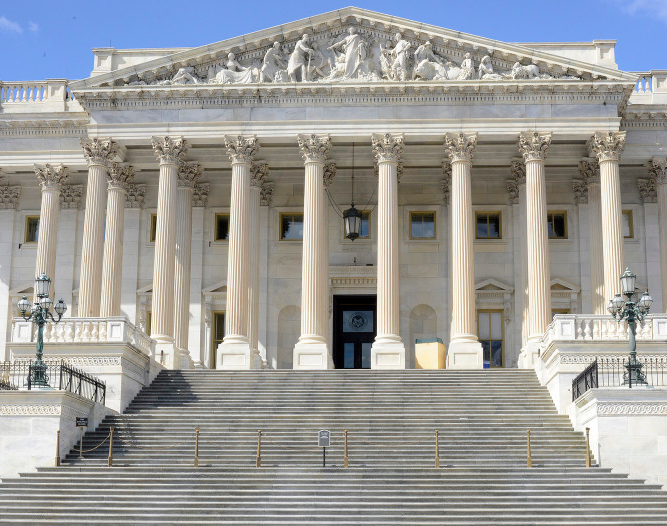U.S. House lawmakers are pressing pause — once again — on efforts to relax federal restrictions around cannabis. This week, a key congressional subcommittee advanced a funding bill that takes a direct swipe at the Department of Justice’s ability to reclassify the drug.
The move comes just as the Biden administration explores shifting cannabis from the strictest drug category under federal law. That effort now faces fresh political headwinds.
Budget Bill with a Policy Punch
The vote happened quietly but carries weight. On Monday, the House Appropriations Subcommittee on Commerce, Justice, Science and Related Agencies — often just called CJS — greenlit a budget bill that includes a simple, but sweeping provision: no federal money can be spent by the DOJ to change cannabis’s classification under the Controlled Substances Act.
Two lines of legislative language, but huge implications.
In plain terms, that means no rescheduling. Cannabis stays in Schedule I, alongside heroin, LSD and ecstasy. That’s the most restrictive category under federal law — reserved for substances deemed to have “no currently accepted medical use” and a high potential for abuse.
Even though over half the country has legalised cannabis in some form, and more than three-quarters of Americans now support its legalisation, Congress still hasn’t updated the federal books.

DOJ’s Hands May Be Tied — Again
This isn’t the first time lawmakers have tried to clip the DOJ’s wings on cannabis.
Back in 2014, a similar rider prevented the agency from interfering with state-level medical marijuana programmes. But this new move goes further. It targets the DOJ’s power to reschedule cannabis altogether, even if the agency wanted to.
That’s a sharp contrast to what’s been happening behind the scenes.
In 2022, President Biden directed federal health agencies to review cannabis’s legal status. The Department of Health and Human Services (HHS) completed its review last year and recommended moving cannabis to Schedule III — a less restrictive classification that acknowledges medical use.
The DOJ, through the Drug Enforcement Administration (DEA), is now weighing that recommendation. But this budget amendment would stop that process cold.
One sentence. That’s all it takes to grind the gears.
Why This Matters: Legal Gridlock and Economic Fallout
Keeping cannabis in Schedule I isn’t just symbolic — it comes with consequences.
For one, Schedule I status creates major headaches for research. Scientists face layers of red tape to study the plant, even in states where it’s legal. That slows medical progress and keeps evidence patchy.
Then there’s the money side. Cannabis businesses, especially those operating legally under state law, still can’t access normal banking services or claim federal tax deductions. This leaves them operating in cash-heavy grey areas with punishing tax bills.
• According to Whitney Economics, nearly 24% of U.S. cannabis companies reported being unprofitable in 2023 due largely to federal tax constraints under IRS Code 280E, which applies specifically to Schedule I and II substances.
Keeping cannabis locked in Schedule I means those issues stick around. And that frustrates everyone — from researchers to entrepreneurs to everyday patients.
Partisan Lines Drawn… Again
So who’s behind this move? And who’s opposing it?
The amendment to block DOJ rescheduling efforts was introduced by Republican lawmakers on the CJS subcommittee. They argue that changes to drug policy of this scale should go through Congress — not be handled through agency discretion.
But critics see it as an attempt to stall progress, ignoring both science and public opinion.
Democratic members voiced concern that the amendment could short-circuit the administrative review process already underway. They argue that agencies like HHS and DEA are exactly the right institutions to lead this type of evidence-based evaluation.
Tensions ran high during the markup session. No surprise there.
One-sentence paragraph to let this breathe.
The final vote passed along party lines.
Public Opinion Leaves Congress Behind
Here’s the twist: While Congress bickers, Americans aren’t nearly so divided.
Recent Gallup polling shows 70% of Americans support legalising cannabis nationwide. Support crosses generational and party lines, especially among younger voters. Even medical marijuana enjoys near-universal backing.
And yet, federal policy still reflects a 1970s-era war on drugs mentality.
Some lawmakers say this is just more of the same — political inertia keeping progress frozen. Others argue it’s a necessary brake to let Congress catch up before unelected agencies rewrite major drug policy.
Either way, it leaves the U.S. in a peculiar position: with cannabis legal in some states, criminal in others, and stuck in a federal grey zone for everyone.
What’s Next? A Cloudy Forecast
This amendment still has a long way to go. It’s part of a broader budget bill that must pass both the House and Senate — no easy feat in an election year with a divided Congress.
Even if it survives, it would only affect the DOJ’s budget for fiscal year 2025. But that’s still enough to delay rescheduling, likely into the next administration.
Here’s a breakdown of how things currently stand:
| Issue | Current Status | Possible Change If DOJ Acts |
|---|---|---|
| Cannabis Legal Status (Federal) | Schedule I | Could move to Schedule III |
| Medical Use Recognised Federally | No | Yes |
| Tax Restrictions (280E) | Apply | Would be lifted |
| Cannabis Research Restrictions | Very High | Could ease significantly |
Some experts worry this delay could affect state-level reforms too, especially in states that were banking on federal changes to support their markets.
The irony? While Congress drags its feet, dispensaries across 38 states are open for business, offering products that are technically Schedule I drugs under federal law.
Strange times.
Maria Garcia is an award-winning author who excels in creating engaging cannabis-centric articles that captivate audiences. Her versatile writing style allows her to cover a wide range of topics within the cannabis space, from advocacy and social justice to product reviews and lifestyle features. Maria’s dedication to promoting education and awareness about cannabis shines through in her thoughtfully curated content that resonates with both seasoned enthusiasts and newcomers alike.








